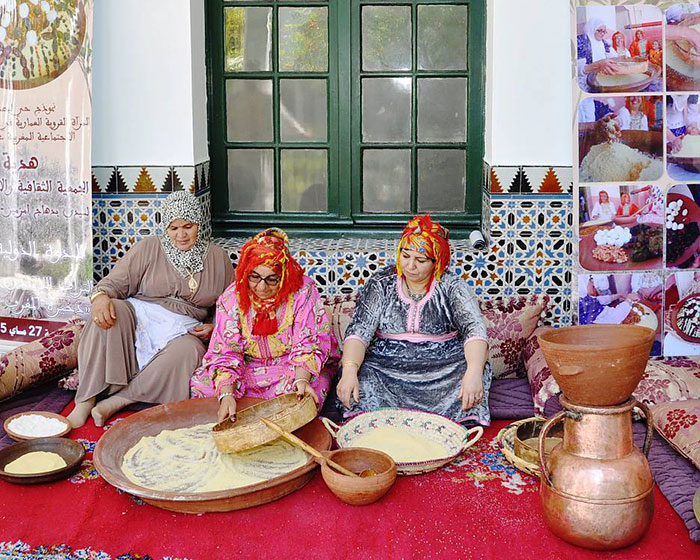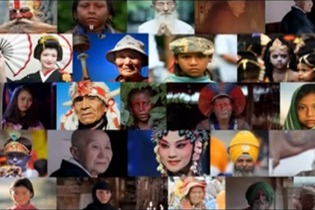16 October, World Food Day: a focus on living heritage and foodways
 |
| One of the last elements inscribed on the Representative list: "Knowledge, know-how and practices pertaining to the production and consumption of couscous", Algeria, Mauritania, Morocco and Tunisia © Direction du patrimoine culturel, Ministère de la culture, Maroc, 2018 |
Current estimates are that nearly 690 million people are hungry, or 8.9 percent of the world population – up by 10 million people in one year and by nearly 60 million in five years. The Sustainable Development Goal 2 (SDG 2, ‘Zero Hunger’) notably targets the maintenance of genetic diversity of seeds, the implementation of resilient agricultural practices and the enhancement of agricultural productive capacity in developing countries.
Numerous forms of living heritage support these aims. For example, traditional diets contribute to food security and good nutrition through the knowledge and beliefs related to foodways, from the cultivation of crops to the preparation of meals. Some forms of living heritage focus on the sanctity of food and encourage eating locally grown produce, thus reducing food waste (SDG 12, ‘Responsible consumption and production’) and carbon emissions (SDG 13, ‘Climate action’). Many cultures also follow the practice of food-sharing among community members, helping alleviate hunger while strengthening social bonds.
Browse through our resources below to discover some of those elements!
Related food: Bread
Art of Neapolitan ‘Pizzaiuolo’ (Italy)
Flatbread making and sharing culture: Lavash, Katyrma, Jupka, Yufka (Azerbaijan, Iran (Islamic Republic of), Kazakhstan, Kyrgyzstan, Turkey)
Il-Ftira, culinary art and culture of flattened sourdough bread in Malta (Malta)
Related food: Beverages
Ancient Georgian traditional Qvevri wine-making method (Georgia)
Arabic coffee, a symbol of generosity (Oman, Qatar, Saudi Arabia, United Arab Emirates)
Beer culture in Belgium (Belgium)
Turkish coffee culture and tradition (Turkey)
Related food: Fruits and vegetables
Date palm, knowledge, skills, traditions and practices (Bahrain, Egypt, Iraq, Jordan, Kuwait, Mauritania, Morocco, Oman, Palestine, Saudi Arabia, Sudan, Tunisia, United Arab Emirates, Yemen)
Nar Bayrami, traditional pomegranate festivity and culture (Azerbaijan)
Oshituthi shomagongo, marula fruit festival (Namibia)
Tradition of kimchi-making in the Democratic People’s Republic of Korea (Democratic People’s Republic of Korea)
Related food: Diet and foodways
Dolma making and sharing tradition, a marker of cultural identity (Azerbaijan)
Gastronomic meal of the French (France)
Hawker culture in Singapore, community dining and culinary practices in a multicultural urban context (Singapore)
Knowledge, know-how and practices pertaining to the production and consumption of couscous (Algeria, Mauritania, Morocco, Tunisia)
Mediterranean diet (Cyprus, Croatia, Spain, Greece, Italy, Morocco, Portugal)
Oshi Palav, a traditional meal and its social and cultural contexts in Tajikistan (Tajikistan)
Traditional Mexican cuisine - ancestral, ongoing community culture, the Michoacán paradigm (Mexico)
Washoku, traditional dietary cultures of the Japanese, notably for the celebration of New Year (Japan)

Address: 81, Laiguangying West Road, Chaoyang District, Beijing, China
Zip Code: 100021
Tel: 86-10-64966526
Fax: 86-10-64969281
E-mail: crihap@crihap.cn
Leave us your e-mail address, we'll let you know about current events.



